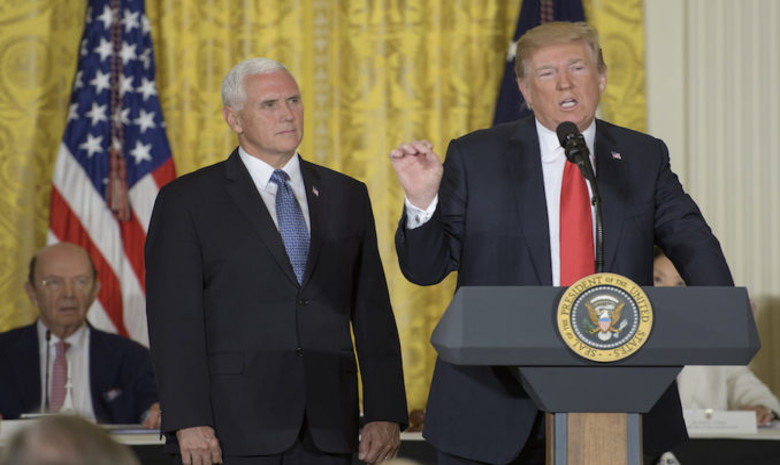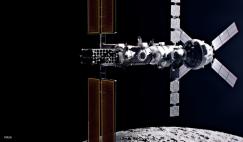Having hinted at it a few months ago, on Monday President Trump officially directed the Pentagon to establish a sixth branch of the military, a “space force,” that will be ‘separate but equal’ to the US Air force.
"We must have American dominance in space,” said Trump, as he reiterated his earlier stance on the subject again at the National Space Council Meeting held at the White House this week, albeit this time with more authority. ”I’m hereby directing the Department of Defense and Pentagon to immediately begin the process necessary to establish a space force as the sixth branch of the armed forces. That's a big statement.”
Following the announcement, many took to social media to point out that President Trump cannot actually create a space force and that a new branch of the military can only be established by an act of Congress.
“The president told a US general to create a new Space Force as 6th branch of military today, which generals tell me they don’t want,” wrote Sen. Bill Nelson, via Twitter. Nelson, who once flew aboard a space shuttle is a Florida Democrat currently running for re-election. “Thankfully the president can’t do it without Congress because now is NOT the time to rip the Air Force apart. Too many important missions at stake.”
Nonetheless, last year the House did pass a bill that would have created a space corps, but the plan never took hold in the Senate. Defence Secretary James Mattis who “strongly” urged Congress to reconsider the proposal at the time was quoted as saying; “The creation of an independent Space Corps, with the corresponding institutional growth and budget implications, does not address the specific concerns nor our nation’s fiscal problems in a responsive manner.”
Historically it has been left to the US Air Force to oversee the command of the military's existing satellite systems such as reconnaissance satellites, missile-warning systems, GPS and communications platforms, however, with the US military and intelligence agencies increasingly concerned about the vulnerability of such critical units, there are calls by some for a separate entity to protect these space-based assets.
"The biggest opponent for creating any kind of space force has been the Air Force," said Todd Harrison, director of the Aerospace Security Project at the Center for Strategic and International Studies. "Now that the president has given this order to the military that this is what he wants to do, they're not going to be able to oppose it."
The meeting also saw Trump sign his administration’s third Space Policy Directive, which primarily focuses on managing and monitoring the increasing numbers of satellites in low-Earth orbit and mitigating debris in space. The two go hand in hand as the tens of thousands of pieces of space junk drifting around Earth pose an increasing threat to costly spacecraft and satellites.
The somewhat overshadowed directive, "seeks to address the challenges of a congested space environment," said Executive secretary of the National Space Council Scott Pace.











